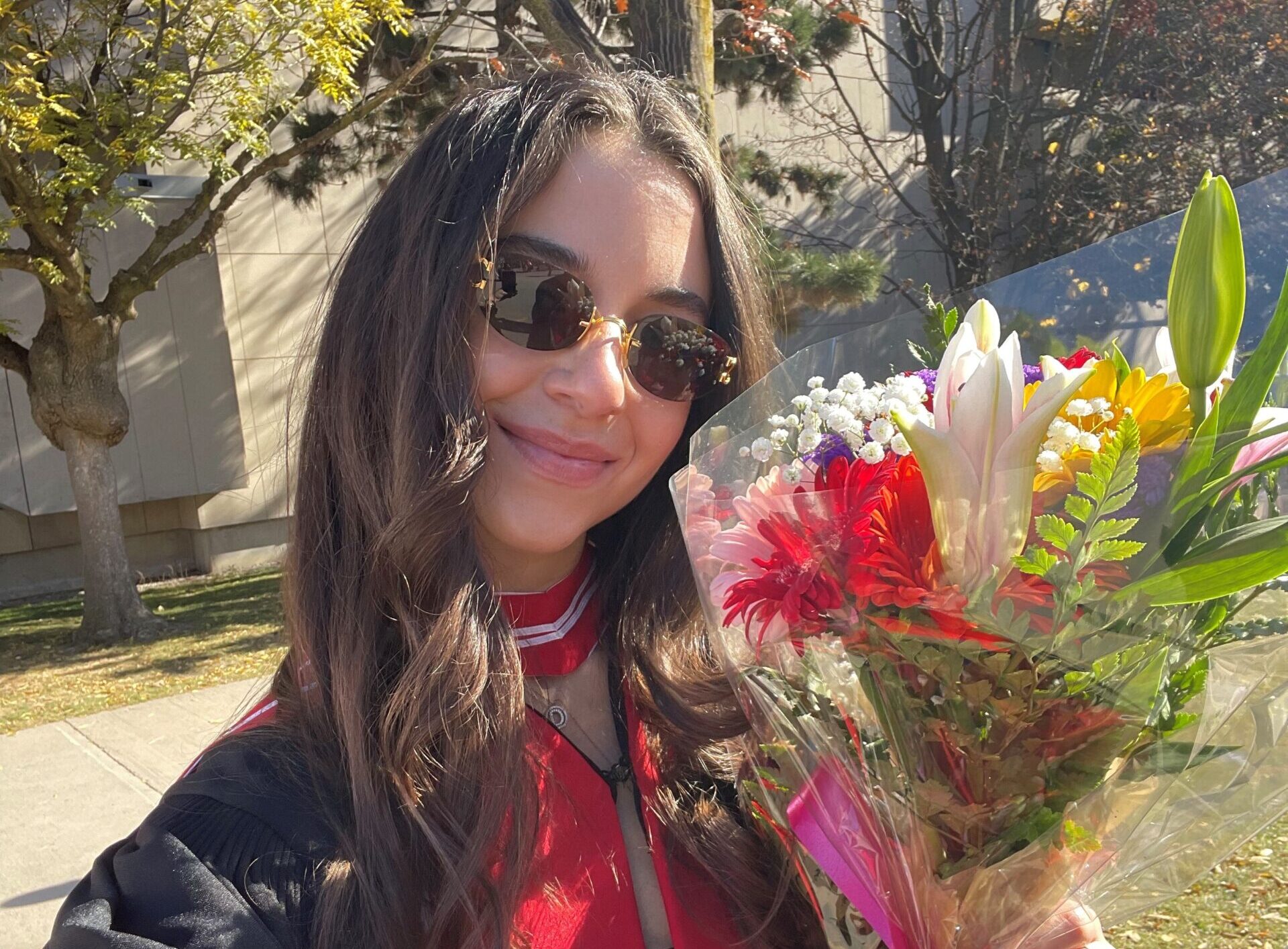Interview with PhD Graduate, Dr. Dylan Herman

We spoke with PhD graduate Dylan Herman about her research, which focuses on centering the perspectives and needs of patients in pregnancy care. In the interview below, Dylan shares some memorable experiences from her degree and offers some advice for graduate students.
Introduce yourself!
I’m Dylan, I’m a graduate from the Institute of Medical Science at the University of Toronto. I just completed my PhD in Medical Sciences, specializing in pregnancy research.
In support of my study, I received two grants. The first was the Ontario Graduate Scholarship from the University of Toronto and the second was the Bernard Ludwig studentship in Obstetrics and Gynecology at Mount Sinai Hospital in the Sinai Health system.
Tell us about your research.
Pregnancy-related research has traditionally focused on the physical health of pregnant persons and their babies. This may be due to a lack of incorporation of patient perspectives within obstetric trials. So, the objective of my study was to identify the issues that health service users (patients with a pregnancy experience) and healthcare professionals (those involved in the care of pregnant persons) perceive to influence the health and well-being of pregnant persons and their babies and to understand how these issues are prioritized by these participant groups, with an aim to inform pregnancy research, policy and care.
What were some of the most memorable experiences of your PhD?
Well, I think something that was super exciting for me was, because of the methodology that I used, which was content mapping, I was able to get formally trained in the method. I traveled to Cornell University in Ithaca, New York and received a three-day crash course in the methodology and immersed myself in that for a few days – so that was really exciting.
Being a graduate student and having to write so many grants and dedicate so much time towards trying to get funding and then seeing that actually happen – like winning a big award and seeing your hard work actually be rewarded – is the best feeling ever.
I think a lot of what makes your experiences as a grad student is the lab that you’re in and I think the fact that I was surrounded by such a supportive one made the experience so pleasant for me. I was very lucky.
What kinds of skills did you gain during your degree?
I think in terms of specific skills, multitasking is a big one. There are so many moving parts to a study, and you really have to be on top of every little component. I think about my study as my business. I built it from the ground up, I planned it, I had a team supporting me throughout the way. You’re dealing with participants, so those are like your clients, and you always have to make sure that they’re feeling supported and comfortable sharing with you. After that, you analyze your data and launch the results of your study. I could imagine this process is very similar to seeing a business flourish and come to life.
What advice would you give to incoming graduate students?
When you’re exploring potential supervisors and potential labs, take the time to really investigate who they are and what the work they do is. If you’re able to meet them in-person or over Zoom, have questions that could allow you to see whether you think that you would mesh well with them. Making sure that you’re surrounded by people who support you and who you mesh well with personality-wise is super important.
What’s next for your studies and career?
I’ll continue to attend conferences and disseminate the results of my study. In terms of my career, I’m not really sure what I want to do, but I think definitely something in the realm of women’s health and pregnancy, perhaps leaning into the pharmaceutical field, maybe something with IVF. I think taking my time and networking and exploring is really important, so that’s what I’m doing now.
News